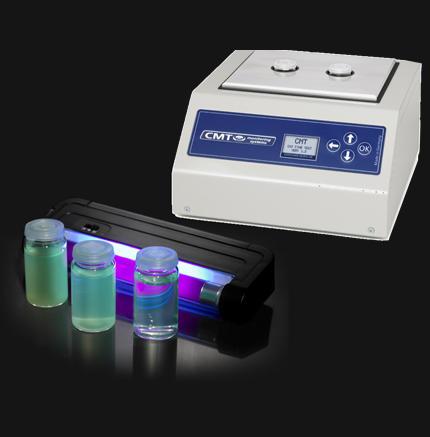In general, marine diesel engines burn residual fuel oils. Some may contain higher levels of contaminants, such as water and abrasive solids, than others. To achieve reliable and cost-effective operation it is necessary to clean all residual fuel oils before injection into the engines.
The leading cleaning method used on board ships today is centrifugal separation. According to ISO 8217 the maximum allowable content of catalytic fines is 60 ppm. Engine builders anticipate that this will be reduced by the fuel cleaning system to a maximum of 10 - 15 ppm.
Catalytic fines are small particles of spent catalyst after employing catalytic cracking processes. They are very hard and capable of severely scratching, if not cutting, metal.
All catalytic fines, that remain in the fuel oil after centrifugal separation have the potential to cause abrasive wear and damage to the engine.
With the CMT Cat Fines Test Kit you are capable of determining the concentration of catalytic fines in fuel.
The simple test is easy to perform and the device is easy to operate. Therefore it is possible to perform several tests in a short time period.
The device can be used for various measurements such as :
- determining the content of catalyst fines after delivery
- evaluation of the effectiveness of the separator
- determining the content of catalyst before the injection
Thus malfunctions as well as wear of the engine can be controlled.
Cat Fines Test Kit- Range: 10 - 100 ppm
- Accuracy: +/- 2ppm
- Test Time: 10 minutes
- No. of Tests: 30
